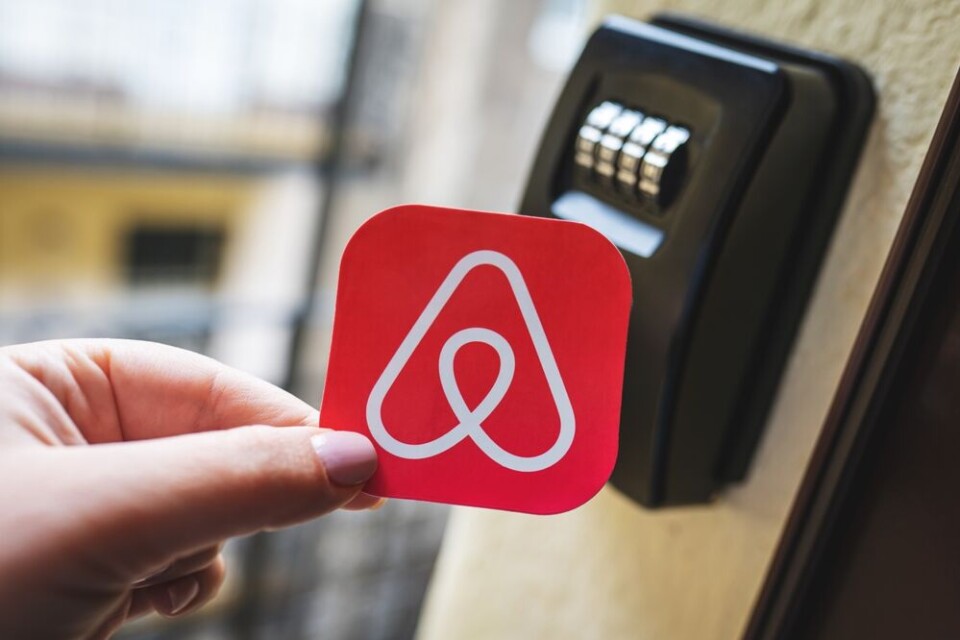-
Airbnb can be seen by tax office as 'similar to a hotel' if too many services are offered to clients
Classification as 'non-professional' furnished landlord used to be a simple way to declare revenue
-
Landlords: Take note of this French tenancy rule
If you rent out a home, watch out for locataire protégé rules
-
Tough Airbnb rules in Marseille prompt many property owners to sell
City council reduce time that a property can be rented to short-term guests
Paris joins Nice, Lille and other cities crackdown on ‘key boxes’
If a vote against the boxes goes ahead, owners risk them being removed next month

Authorities in Paris are likely to become the latest to crack down on ‘key boxes’ in the capital, as the boxes grow in popularity, particularly with the spread of short-term rentals.
Paris has become the latest city to focus on the removal of these boxes, after similar efforts in Lille (Nord, Hauts-de-France), Annecy (Haute-Savoie, Auvergne-Rhône-Alpes), Saint-Malo (Ille-et-Vilaine, Brittany), and Nice (Alpes-Maritimes, Provence-Alpes-Côte d'Azur).
Key boxes, also called lockboxes or keycode boxes, are typically small black or grey units affixed to walls or pipes, with a keypad or similar method that allows people to open the box with a numeric code.
They are sometimes screwed (or otherwise securely fixed) to the wall or door, but some hang from pipes or railings like a large padlock.
They are often used to enable Airbnb (and similar) guests to gain access to their short-term rental autonomously, without needing to meet someone in person for a key handover.
‘Damaging to street furniture’
The boxes are already technically banned in public spaces in Paris because of their appearance and potential security threat, but this does not appear to have stopped their spread.
Ian Brossat, a Paris Senator, has said: “These boxes, which look like big padlocks, are damaging the street furniture, particularly in the Montmartre district.
“Some owners are evading the ban…[the boxes] appear here and there, on barriers along the pavements, on fences, on bicycle racks, on the arches of gutters or hanging from lampposts and road signs,” said Mr Brossat, writing on X (formerly Twitter).
Les boîtes à clés installées sans autorisation dans l’espace public pour louer son Airbnb, souvent de façon illégale ?
— Ian Brossat (@IanBrossat) January 15, 2024
Nous proposons de les interdire.
À partir du mois de février, c’est à la disqueuse qu’on les fera enlever. https://t.co/ncgNw1PFvo
Mr Brossat is now planning to propose a further ban on placing these boxes on street furniture or anywhere visible in public. If the ban goes ahead, municipal police officers will be tasked with placing a dated sticker on any offending box to inform the owner of the ban, and to request immediate removal.
A formal letter will also be sent to the owner. If there is no response, from February onwards, authorities will remove the lockboxes, Mr Brossat said. Owners will be able to retrieve their removed boxes from the city’s lost property department.
Some buildings ban short-term rentals however sometimes the lock boxes are not used for tourists, but as backup keys for residents.
There are other options - both for short-term rental hosts and for residents who want to make sure they never get locked out of their home - which comply with the ‘street furniture’ and public space ban.
These include attaching similar lockboxes to the door of the property, or using digital smart locks that allow users to unlock and lock the door using a smartphone app.
Related articles
MPs propose further crackdown on short-term rentals on France
South of France tourist town to strictly limit short-term lets
Paris citizens group gives ideas to keep Airbnb lets low post Covid
























